Principal Investigator

Anju Vasudevan, PhD is an Associate Professor of Neuroscience, Director of the Angiogenesis & Brain Development Laboratory, and Chair/Scientific Director of the Department of Basic/Translational Neurosciences at Huntington Medical Research Institutes (HMRI). Dr. Vasudevan received her PhD degree in Neuroscience from the University of Cologne, Germany and performed postdoctoral work in the Department of Neurology at Massachusetts General Hospital/Harvard Medical School. From 2007-2020, Dr. Vasudevan was a faculty member in the Departments of Neurology and Psychiatry at Harvard Medical School. Dr. Vasudevan established the Angiogenesis and Brain Development …Laboratory (ABDL) in 2011, at McLean Hospital. The ABDL moved to HMRI in 2020, and is also known as the Neurovascular Research Program here. Dr. Vasudevan served as the Director of the Postdoctoral Fellowship Program from 2020-2022, and created a robust network of talented postdoctoral fellows at HMRI. Dr. Vasudevan’s work on early embryogenesis of the forebrain vascular system, and diversity of endothelial cell populations, has opened up an entirely new conceptual framework from which to view this important component of brain development. Her research focuses on defining new cellular and molecular mechanisms governing brain development and the way it shapes postnatal and adult behaviors. This work has implications for understanding, prevention, and treatment of a variety of nervous system disorders like schizophrenia, autism, epilepsy, developmental delays, anxiety, and depression. Dr. Vasudevan is the recipient of the NARSAD Young Investigator Award, NARSAD Independent Investigator Award and awards from the National Institute of Health. Apart from science, Anju loves nature and enjoys creative activities.

Anju Vasudevan, PHD
Title
Anju Vasudevan, PhD is an Associate Professor of Neuroscience, Director of the Angiogenesis & Brain Development Laboratory, and Chair/Scientific Director of the Department of Basic/Translational Neurosciences at Huntington Medical Research Institutes (HMRI). Dr. Vasudevan received her PhD degree in Neuroscience from the University of Cologne, Germany and performed postdoctoral work in the Department of Neurology at Massachusetts General Hospital/Harvard Medical School. From 2007-2020, Dr. Vasudevan was a faculty member in the Departments of Neurology and Psychiatry at Harvard Medical School. Dr. Vasudevan established the Angiogenesis and Brain Development …Laboratory (ABDL) in 2011, at McLean Hospital. The ABDL moved to HMRI in 2020, and is also known as the Neurovascular Research Program here. Dr. Vasudevan served as the Director of the Postdoctoral Fellowship Program from 2020-2022, and created a robust network of talented postdoctoral fellows at HMRI. Dr. Vasudevan’s work on early embryogenesis of the forebrain vascular system, and diversity of endothelial cell populations, has opened up an entirely new conceptual framework from which to view this important component of brain development. Her research focuses on defining new cellular and molecular mechanisms governing brain development and the way it shapes postnatal and adult behaviors. This work has implications for understanding, prevention, and treatment of a variety of nervous system disorders like schizophrenia, autism, epilepsy, developmental delays, anxiety, and depression. Dr. Vasudevan is the recipient of the NARSAD Young Investigator Award, NARSAD Independent Investigator Award and awards from the National Institute of Health. Apart from science, Anju loves nature and enjoys creative activities.
Faculty
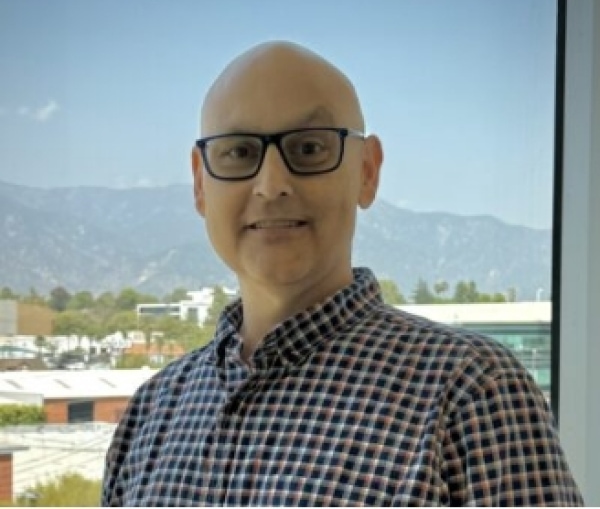
John M. Boyle, PhD is a Staff Scientist/Instructor in the Angiogenesis and Brain Development Laboratory at HMRI. Dr. Boyle received his PhD degree in Molecular and Cell Biology … from the University of California, Berkeley. His doctoral training was focused on the understanding of telomere length homeostasis in human embryonic stem cells. His research focused on the role the shelterin protein TPP1 played in setting and maintaining telomere length set point in embryonic stem cells and the effect that had on their differentiated progeny. Dr. Boyle is currently investigating the cellular and molecular mechanisms underlying schizophrenia pathogenesis using stem cell technology with the … long-term goal of developing new diagnostics and treatments. When not in the lab, John loves to travel and spend time with friends and family.
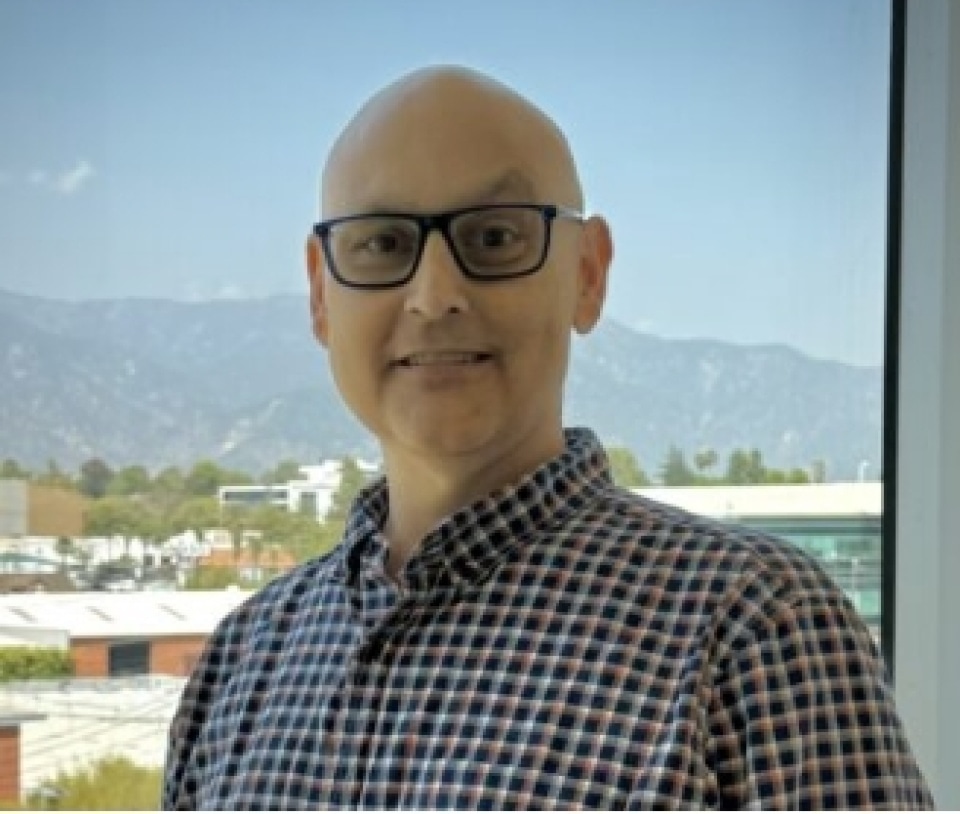
John Boyle, PHD
Title
John M. Boyle, PhD is a Staff Scientist/Instructor in the Angiogenesis and Brain Development Laboratory at HMRI. Dr. Boyle received his PhD degree in Molecular and Cell Biology … from the University of California, Berkeley. His doctoral training was focused on the understanding of telomere length homeostasis in human embryonic stem cells. His research focused on the role the shelterin protein TPP1 played in setting and maintaining telomere length set point in embryonic stem cells and the effect that had on their differentiated progeny. Dr. Boyle is currently investigating the cellular and molecular mechanisms underlying schizophrenia pathogenesis using stem cell technology with the … long-term goal of developing new diagnostics and treatments. When not in the lab, John loves to travel and spend time with friends and family.
Postdoctoral Researchers
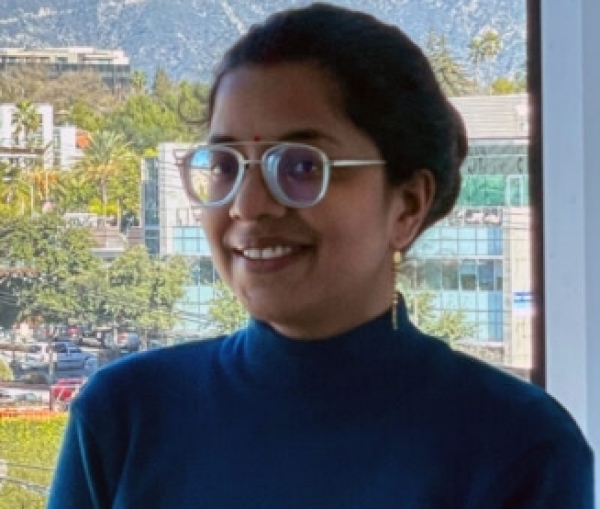
Divya Mishra, PhD is a Postdoctoral Fellow in the Angiogenesis and Brain Development Laboratory. Dr. Mishra received her PhD degree in Life Science from the Jawahar Lal Nehru university of India. Her doctoral training focused on understanding the anti-hypertensive potential of natural compounds and exploration of mechanisms by which they produced vasorelaxation and rescue in cardiac tissue. Specifically, she explored the role of Dehydroepiandrosterone (DHEA) in ex-vivo and in-vivo studies in rodent models, for which she received the Council of Scientific & Industrial Research (CSIR) Fellowship. Her current research focuses on uncovering novel aspects of endothelial-neuronal …interactions and mechanisms of their crosstalk during embryonic forebrain development, that can contribute to the origin of psychiatric illness. Divya loves painting and enjoys cooking during her free time.
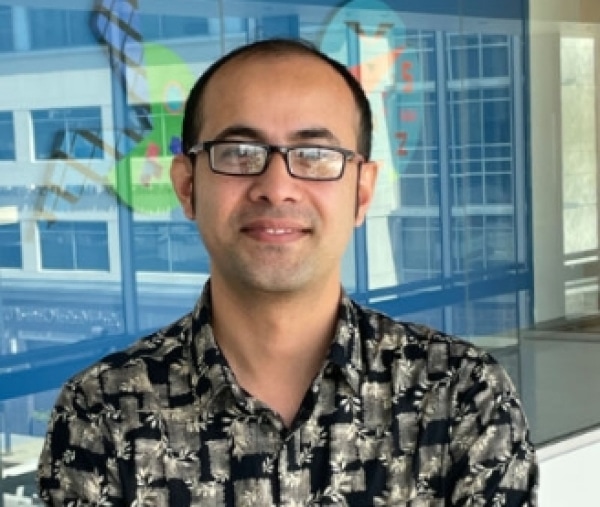
Kazi Helal Hossain, PhD is a Postdoctoral Research Fellow in the Angiogenesis and Brain Development Laboratory. Dr. Kazi Helal received his PhD degree in Biomedical Science from the Department of Medicine, Shimane University, Japan. His doctoral training focused on investigating the impact of P. gingivalis lipopolysaccharide on alteration of gene expression patterns in endothelial cells and its contributions to the pathogenesis of vascular inflammatory diseases. He also studied the morphological and pathological changes of hypertensive brain vessels to understand how hypertension induces the early pathogenesis of cerebral small vessel diseases. During his doctoral …studies, he received several scholarships (Honors, Shimane International Center, and Furukawa Scholarship) in Japan. His postdoctoral research focuses on studying the fundamental mechanisms of endothelial GABA and its receptor-mediated signaling during postnatal brain development with the use of genetic models and elucidating new paradigms of neurovascular interactions in the neocortex. In addition to his research, Kazi Helal loves social work, cooking, gardening, and fishing.
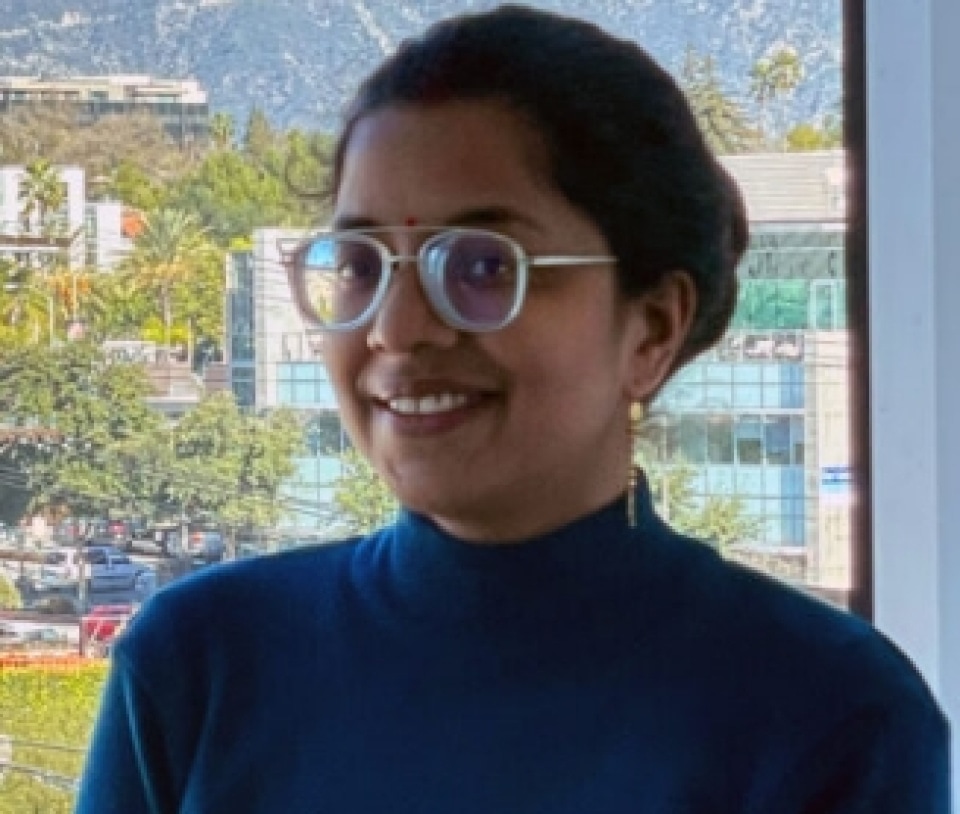
Divya Mishra, PHD
Title
Divya Mishra, PhD is a Postdoctoral Fellow in the Angiogenesis and Brain Development Laboratory. Dr. Mishra received her PhD degree in Life Science from the Jawahar Lal Nehru university of India. Her doctoral training focused on understanding the anti-hypertensive potential of natural compounds and exploration of mechanisms by which they produced vasorelaxation and rescue in cardiac tissue. Specifically, she explored the role of Dehydroepiandrosterone (DHEA) in ex-vivo and in-vivo studies in rodent models, for which she received the Council of Scientific & Industrial Research (CSIR) Fellowship. Her current research focuses on uncovering novel aspects of endothelial-neuronal …interactions and mechanisms of their crosstalk during embryonic forebrain development, that can contribute to the origin of psychiatric illness. Divya loves painting and enjoys cooking during her free time.
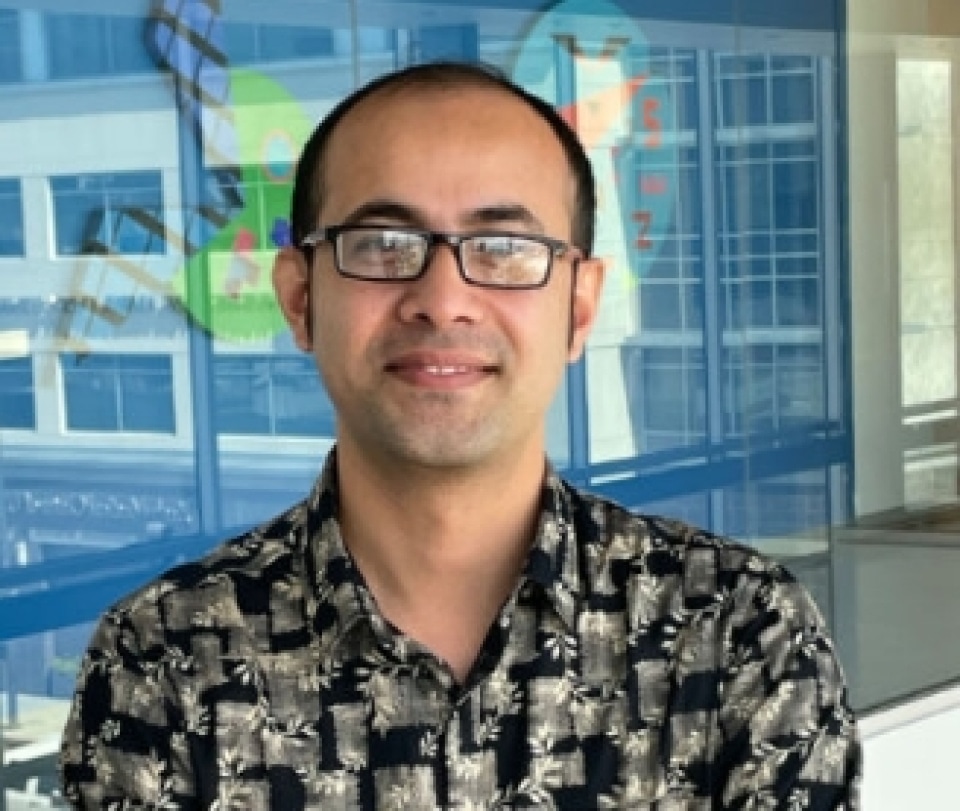
Kazi Helal Hossain, PHD
Title
Kazi Helal Hossain, PhD is a Postdoctoral Research Fellow in the Angiogenesis and Brain Development Laboratory. Dr. Kazi Helal received his PhD degree in Biomedical Science from the Department of Medicine, Shimane University, Japan. His doctoral training focused on investigating the impact of P. gingivalis lipopolysaccharide on alteration of gene expression patterns in endothelial cells and its contributions to the pathogenesis of vascular inflammatory diseases. He also studied the morphological and pathological changes of hypertensive brain vessels to understand how hypertension induces the early pathogenesis of cerebral small vessel diseases. During his doctoral …studies, he received several scholarships (Honors, Shimane International Center, and Furukawa Scholarship) in Japan. His postdoctoral research focuses on studying the fundamental mechanisms of endothelial GABA and its receptor-mediated signaling during postnatal brain development with the use of genetic models and elucidating new paradigms of neurovascular interactions in the neocortex. In addition to his research, Kazi Helal loves social work, cooking, gardening, and fishing.
Lab Staff
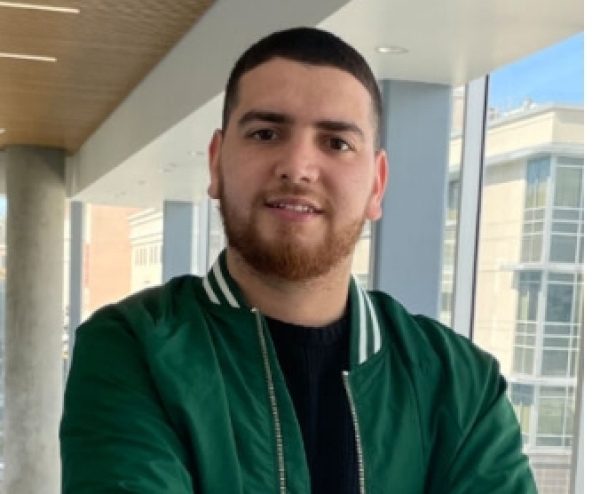
Said Elbakri is a Research Assistant in the Angiogenesis and Brain Development Laboratory at HMRI. He received his Diploma in General Science from FSSM – La Faculté des Sciences Semlalia, Marrakech. Said is the heart of the lab, coordinating transgenic colony management and genotyping, with multiple lab operations.
Said enjoys boxing, reading, soccer, and traveling.
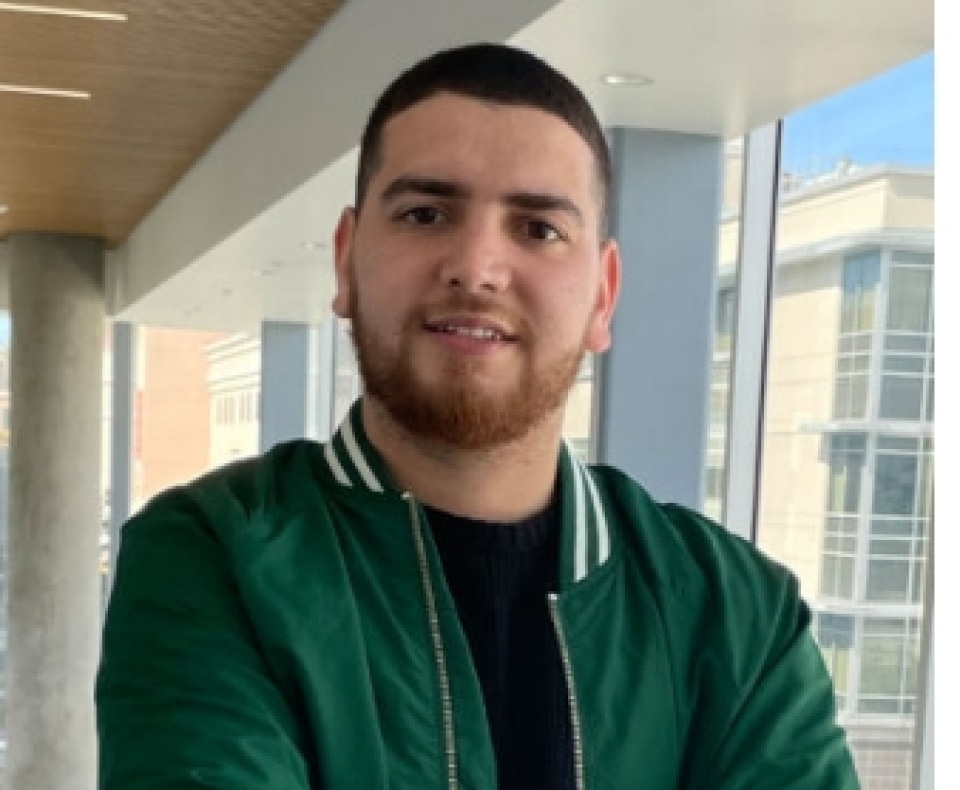
Said Elbakri
Title
Said Elbakri is a Research Assistant in the Angiogenesis and Brain Development Laboratory at HMRI. He received his Diploma in General Science from FSSM – La Faculté des Sciences Semlalia, Marrakech. Said is the heart of the lab, coordinating transgenic colony management and genotyping, with multiple lab operations.
Said enjoys boxing, reading, soccer, and traveling.
Students

Robert A. Kloner, MD, PHD
Lorem ipsum dolor sit amet, consectetur adipiscing elit. Pellentesque a felis dolor. Aenean maximus quam vitae ipsum fringilla accumsan. Aliquam a ullamcorper libero. Integer ornare lacus ut sodales sodales. Donec quis leo volutpat, rutrum mi a, aliquam augue. Curabitur sed eleifend purus. Sed id dui dignissim, tincidunt tellus at, pharetra ipsum.

Robert A. Kloner, MD, PHD
Lorem ipsum dolor sit amet, consectetur adipiscing elit. Pellentesque a felis dolor. Aenean maximus quam vitae ipsum fringilla accumsan. Aliquam a ullamcorper libero. Integer ornare lacus ut sodales sodales. Donec quis leo volutpat, rutrum mi a, aliquam augue. Curabitur sed eleifend purus. Sed id dui dignissim, tincidunt tellus at, pharetra ipsum.

Robert A. Kloner, MD, PHD
Lorem ipsum dolor sit amet, consectetur adipiscing elit. Pellentesque a felis dolor. Aenean maximus quam vitae ipsum fringilla accumsan. Aliquam a ullamcorper libero. Integer ornare lacus ut sodales sodales. Donec quis leo volutpat, rutrum mi a, aliquam augue. Curabitur sed eleifend purus. Sed id dui dignissim, tincidunt tellus at, pharetra ipsum.



